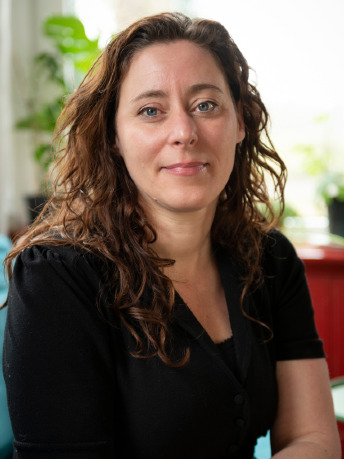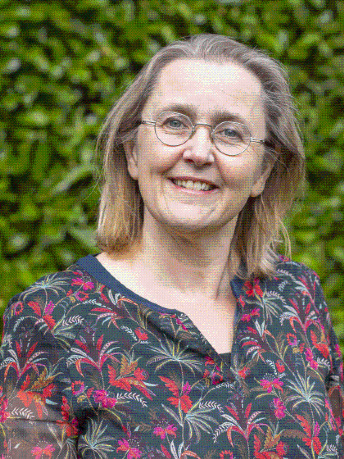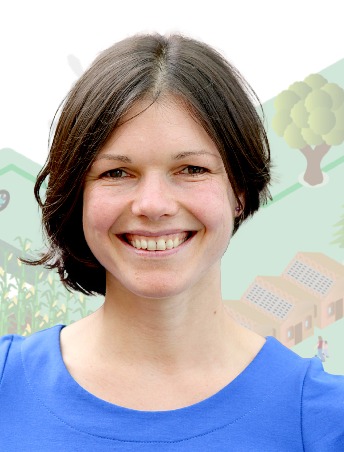Four Aletta Jacobs Professors appointed at the Faculty of Behavioural and Social Sciences
On the recommendation of the Faculty Board, the Board of the University has appointed Rafaële Huntjens, Maaike Nauta, Goda Perlaviciute and Annette van der Putten as professors at the Faculty of Behavioural and Social Sciences. The appointments are within the context of the Aletta Jacobs incentive fund. The purpose of this fund is to increase gender equality within the professor positions at the UG.

Trauma-related disorders
Rafaële Huntjens has been appointed professor of Experimental Clinical Psychology, in particular of trauma-related and dissociative disorders. The chair was established to identify psychological processes involved in the emergence and maintenance of trauma-related and dissociative disorders and, on that basis, to develop and evaluate intervention methods.
The research is conducted in close cooperation with several mental health institutions, including GGZ Drenthe, GGZ Oost-Brabant, Altrecht, Arkin and ARQ National Psychotrauma Centre.
With her research, Huntjens aims to contribute to a better understanding of the risk factors and sustaining factors of trauma-related and dissociative disorders in particular.
Huntjens: ‘Science is also important for the clinical field! With my research, I hope to contribute to effective and evidence-based care.'

Mental disorders in children and adolescents
Maaike Nauta has been appointed professor of Clinical Psychology, in particular with regard to children and young people. The chair was established to contribute to a better understanding of the factors and mechanisms that contribute to the onset and maintenance of common mental disorders in children and young people, including anxiety disorders, obsessive compulsive disorder, and anxiety-related difficulties. The aim is to optimize interventions, both in terms of content and format, and to test them for effectiveness.
The research is conducted in cooperation with schools and mental health institutions including Accare (for youth mental health), where Nauta also works as a registered Health Care Psychologist.
With her research, Nauta aims to contribute to well-founded and effective treatments, especially for children and young people who suffer excessively from anxiety or obsessive-compulsive disorder. Which treatment works for whom? How can we improve interventions? And how can we ensure that young people remain resilient and do not develop similar problems again?
Nauta: 'As a scientist-practitioner, I want to integrate clinical and fundamental research in order to have a real impact on the care for children and young people who suffer from anxiety or obsessive-compulsive disorder.'

Public acceptability of sustainable transitions
Goda Perlaviciute has been appointed professor of Public acceptability of sustainable transitions. This unique chair focuses exclusively on understanding public acceptance of sustainable transitions, including climate and energy. What determines acceptance of sustainability policies? Why do individual and group differences in perceptions and support for policies arise? How do you get people on board when implementing policies?
To make the transition to a sustainable society, changes are necessary, think of the implementation of sustainable technologies, infrastructures and policies. Such changes are not possible if there is no support from society. The chair develops and tests theory to explain which and how factors influence public acceptance of sustainable transitions. Special attention is paid to the interaction between individual factors, such as people's values, and contextual factors, such as the characteristics of sustainable transitions.
Perlaviciute: ‘This chair is essential for understanding what motivates people to get on board for the most needed sustainable transitions of our time.’

Severe multiple disabilities
Annette van der Putten has been appointed Professor of Special Needs education focusing in particular on people with profound multiple disabilities. The chair was established to optimise the quality of upbringing and support of people with (very) severe intellectual and (very) severe motoric disabilities.
Partly because of the persistent, severe and interrelated disabilities and the dependence of the described target group, knowledge development focuses on fundamental knowledge and on context factors and is interdisciplinary. There is structural cooperation with the Hanze University of Applied Sciences and two large care organizations (‘s Heeren Loo and Koninklijke Visio) in an ‘academic workplace’ whose knowledge infrastructure is financed by ZonMw. From this workplace also cooperation with other partners including parent organizations and (inter)national expertise and knowledge centres takes place. Substantively, the research focuses on the full breadth of support and deals with physical health, well-being and mental health and participation, but also with topics related to professionals working with the described target group, and families and family-related quality of life. Moreover, involving expertise by experience as well as translating scientific knowledge into products for practice are priorities of the workplace.
Van der Putten: ‘From this strong collaboration between practice (professionals and relations) and science, we hope to improve the lives of people who depend on others and their families.’
More information
-
Profile page Rafaele Huntjens
-
Profile page Maaike Nauta
-
Profile page Goda Perlaviciute
-
Profile page Annette van der Putten
| Last modified: | 27 November 2024 2.50 p.m. |
More news
-
17 March 2025
Liekuut | The high price of conflicts
According to Carsten de Dreu, Professor of Foundations of Cooperation and Social Organization at the University of Groningen, a lot can be learned from conflicts.
-
10 March 2025
Science for Society | Memory Lab for higher marks
Learning facts at school is something hardly anyone likes. The day before a test, pupils cram as many words or names as possible into their heads, only to hopefully remember them the next morning and then forget them again after the test.
-
05 March 2025
Women in Science
The UG celebrates International Women’s Day with a special photo series: Women in Science.


